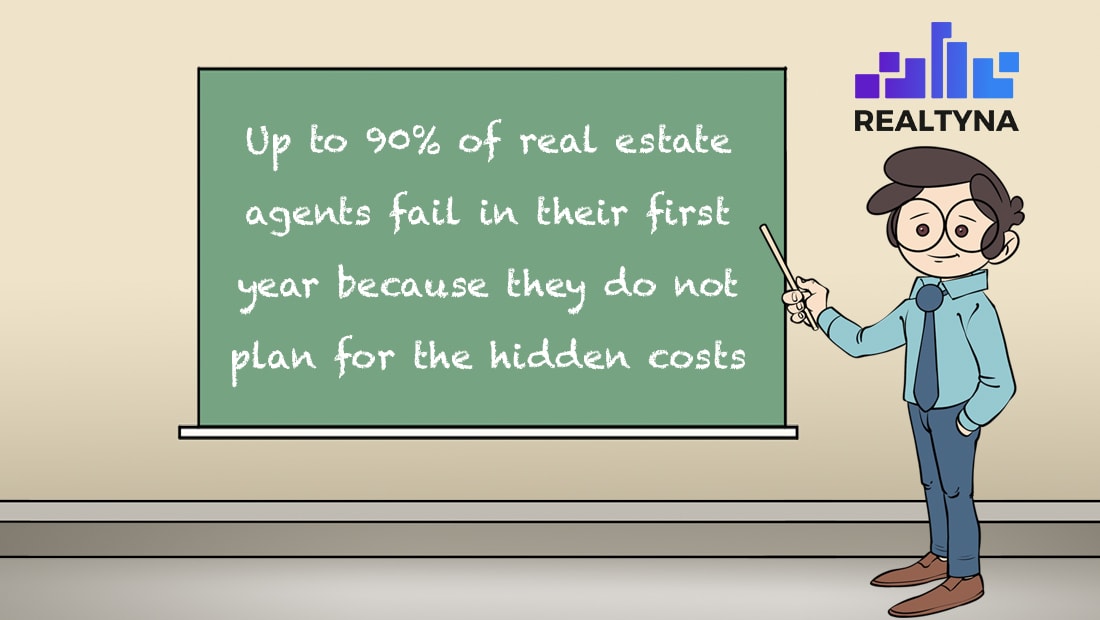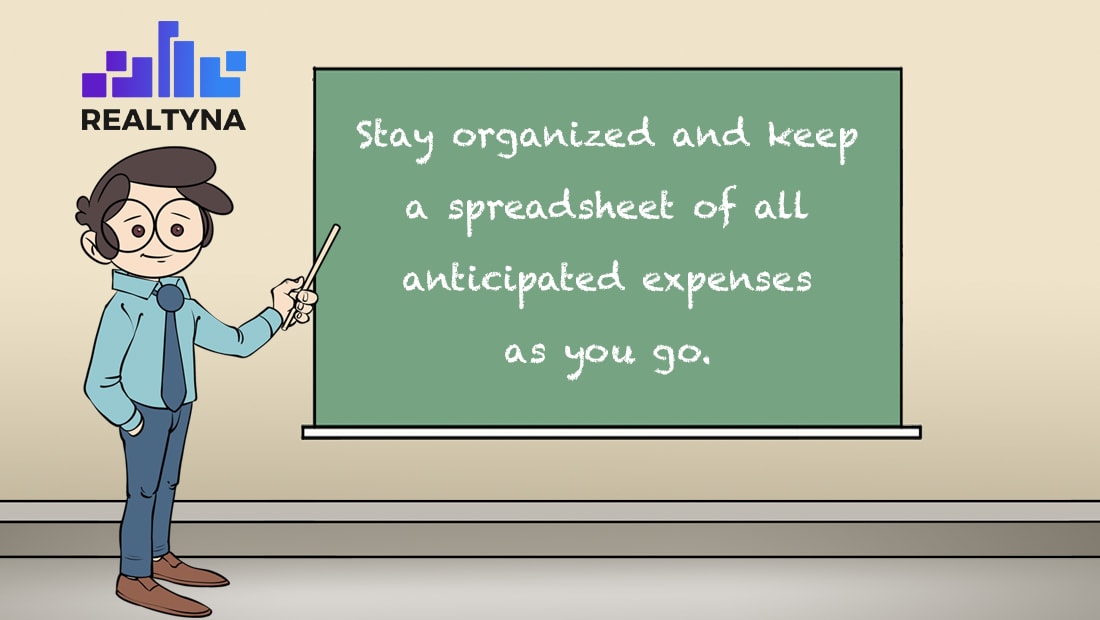
Your First 12 Months: What Are The Hidden Costs in Real Estate?
Are you thinking about starting a career in real estate or already early on your path? Since you clicked on this article, my assumption is yes. First let me tell you some things you probably already know. Real estate is a great opportunity to meet your community, make a positive impact in people’s lives, make your own schedule and earn lots of money. It is also a great industry for 2nd careers (meaning you have already had a career elsewhere and potentially retired from already), or people without a lot of formal university education. Sounds great, huh?
Now, let me tell you what you might not know or want to accept. Between 70%-90% of real estate agents fail in their first year (depending on which study you look at). The leading reason for this boils down to the lack of planning and commitment. Arguably, the biggest thing you must plan for are the hidden costs involved in starting a career in real estate.

Being an agent is not a normal job. You could argue that it is not a job at all, but rather an opportunity. The path to success solely depends on you and understanding and planning for the hidden costs involved will significantly increase your chances of advancement. Below is a list of 11 hidden costs of real estate to consider before you start out.
-Health Insurance: Because the vast majority of real estate agents are considered at independent contractors under law, brokerages are not required and most often do not, offer any health insurance. A few of the larger brokerage firms in the US have wellness programs or options for discounted insurance, but never expect to find anything like you would at a traditional full time job. This is especially important for those of you who do not have a working spouse. You can certainly find your own health insurance, but it will cost you. Over 25% of real estate agents have chosen to pay out of pocket for their health costs.
-Few Employee Benefits: As mentioned above, real estate agents are considered independent contractors. There are many benefits to this, such as, flexibility and being your own boss, however there are disadvantages that you might have forgotten about. More than likely, you will not receive typical benefits you would find at other traditional full time offices. Things you will miss out on are paid vacation time, sick leave, maternity leave, and more. This could vary from firm to firm, but it is not wise to count on any extra benefits.
-Inconsistent Paychecks: You are paid 100% on commissions and nothing more. Even more serious to consider, this commission will not hit until you close on a house, which happens about a month, or more, after winning the offer. It is imperative to prepare for this lag in pay, especially in your first few months before you sell a home, or in the low seasons in your market.
-$$$ in the Bank Beforehand: This might not be a requirement for all firms and teams out there, but it should be standard to have at least 6 months worth of living expenses saved in the bank before you decide to take real estate full time. The reason for this is simply because, it could very well take you that long to close on your first home.
-Getting Licensed: The process to getting licensed is a lengthy and costly one. The costs vary depending on the state you want to be licensed in, so I can only give rough estimates here. First, you must take required courses which will cost you at very minimum, $200. Next will come you license exam which could be anywhere from $50-$200 and then your application/license processing fee which will be another minimum of about $200. In total, just to get licensed, expect to spend no less than $500, but often $1,000+.
-Car Maintenance and Gas: If you never become a “good,” agent, you will surely become a good driver at the very least. Real estate agents drive, A LOT. The average agent will drive 20,000-30,000 miles in business related travel this year. This increases even more when you are based in a big city or metroplex. Do not underestimate this often forgotten expense.
-Open Houses: It is not the biggest cost on the list, but still an often overlooked expense when starting out. Open houses will require marketing, signage and refreshments. If you are smart about it, you can reduce these costs by investing in quality signage that you can reuse and non-perishable snacks/refreshments that you can buy in bulk. Regardless of how you go about it, there will be money involved with your open houses.
-Dues: There are a lot of one-time costs when you are a realtor, but many many more monthly/yearly expenses and dues. From office dues, MLS membership dues, local and national board dues, you will be paying a pretty penny each month or year. This varies greatly depending on your state and local MLS, so it is impossible to give you a number. Start to budget and get organized by making a spreadsheet with all of these expenses.

-Broker Fees: No realtor in the United States can work without being sponsored by a broker. That means, none of the commision is actually yours. The broker will actually give you a percentage of your commision. Similarly, it works the same way with team splits. Depending on the company you work for, these will be configured different ways, but know that you will never receive 100% of your commission as an agent.
-Marketing: Like most things on this list, your marketing budget will vary depending on the broker you are working with, however, prepare for a budget of about $0. In most cases, agents spend out of pocket on any marketing purchases. You can be frugal with this, of course, but many experienced agents budget about $1,000 per month for their own marketing and advertising.
-Website Costs: It might not be the first thing on your to-do list and you might not think it is crucial, but a good real estate website can make the difference between failing and succeeding. This also comes with a cost. Depending on how you go about the process of building a website and what features you want, the costs can range from $0-$10,000+. Many developers will charge a monthly fee, as well as monthly MLS feeds. Developers with one-time fees also exist, but expect a higher upfront cost.
BOILED DOWN: Real estate is not cheap. It is an investment and can be a really rewarding one! My suggestion is to make a running list of all the costs you will require in your first year and budget from there. After you have started your real estate journey, I encourage you to keep a spreadsheet of all your expenses and track how much you spend, where. Always be willing to adjust this budget.
Do not be afraid. With the right amount of planning and budgeting, it is very possible to make a great career out of real estate. I do not mean to scare you out of an amazing opportunity. On the contrary, I actually recommend taking the leap of faith if it is something you can handle mentally and financially.


Sorry, the comment form is closed at this time.